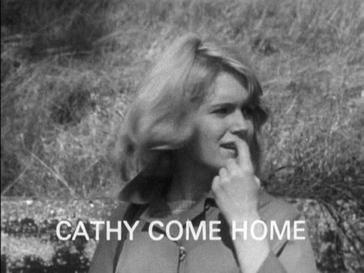Social Realism in British Films
By Michelle Strozykowski

Social Realism has brought us true greats of the British film industry such as Mike Leigh and Ken Loach, and as a genre it is hugely influential on modern cinema.
-
How Did the Dominant Genre of British Film Emerge?
Social realism in British films peaked during the 1960s when what is commonly referred to as the British New Wave emerged. The New Wave directors such as Karel Reisz, Lindsay Anderson and Tony Richardson had made a number of documentaries before moving on to feature films, and many of these had been screened at the (historically important) National Film Theatre event christened 'Free Cinema' in the 1950s. Like the auteurs of the French New Wave (La Nouvelle Vague) many of the British directors were knowledgeable critics as well, affiliated with Sequence magazine. This gave them ample opportunities to promote their agenda.
Free Cinema
Free Cinema was described by Tony Richardson as:
"independent of commercial cinema, free to make intensely personal statements and free to champion the director's right to control the picture. "
Documentaries such as O Dreamland (Anderson) about an English coastal resort, and Momma Don't Allow (Reisz and Richardson) about a suburban jazz club put into practice these directors belief in:
"the freedom and importance of the everyday."
The themes and people discovered in these documentaries were something that the directors went on to introduce to mainstream cinema. The Free Cinema films were made without inhibitions, and led to the social realist aesthetic of putting ordinary people with problems onto the big screen. It is for this reason that the term 'kitchen sink drama' was coined, to describe the hum drum lives of the masses, and the 'angry young man' to describe the rebellious protagonists. They might not always have been men, but they were always angry.
Major Films of the New Wave
Amongst the many films that emerged during the New Wave of social realism there are dozens of examples that continue to be championed to this day. A Taste of Honey, Saturday Night and Sunday Morning, Look Back in Anger, The Loneliness of the Long Distance Runner, This Sporting Life, Billy Liar, Cathy Come Home, Up the Junction, and Room at the Top, to name a few. Many of these films were based on books and plays, as the social realist aesthetic was also alive and thriving in theatre and literature at the time. The movement also ushered in a new wave of actors who embodied social realism in their use of colloquialisms and accents. Actors such as Tom Courtenay, Rita Tushingham and Albert Finney held up a mirror to ordinary working class Brits.
The End of the New Wave
The demise of the films of the British New Wave was due to a number of factors such as the withdrawal of American funding and the meteoric rise of television dramas, which of course are fundamentally an art form based on social realism themselves. The New Wave of British film-makers captured the zeitgeist of the 50s and 60s, paving the way for directors such as Mike Leigh, Stephen Frears and Ken Loach, who continued to make films that shaped a very regional British film industry. Films such as Riff Raff, Naked and My Beautiful Laundrette, although made 20-30 years later, embody the same values as were inherent in the films of the New Wave.
Social Realism Here to Stay
Although the British film industry has an illustrious past, including melodramas that rival 1940s Hollywood film noirs, it is the field of social realism that has provided the most prolonged form of cinematic 'entertainment'. History demonstrates that genre fads come and go. The horror films popularised by Hammer Studios in the late 50s and 60s for example, and the costume dramas which regularly go in and out of fashion. But social realism is more than just a genre, it is the dominant form of cinema in Britain. Just as the classic Hollywood narrative dominates the American film industry regardless of genre, so social realism and political awareness permeate British cinema. This is as true today as it was over half a century ago with social realism evident in popular modern British films such as Trainspotting, Brassed Off, Nil by Mouth, My Name is Joe, Human Traffic and (the triumphant return of master) Ken Loach's Palm d'Or winning 2016 film I, Daniel Blake